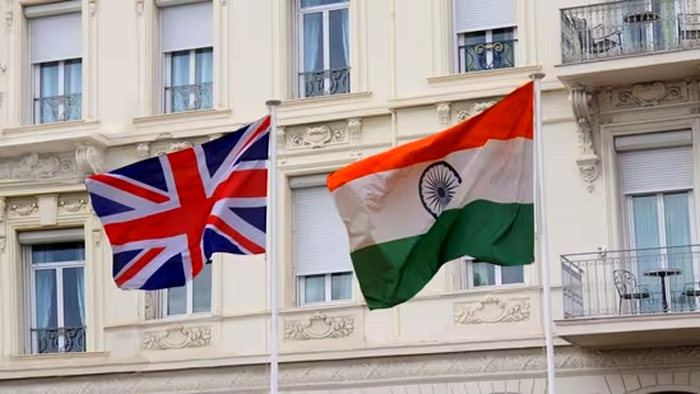‘Denied’: Govt sources on UK trade talks ‘halted’ over Khalistani row – Report
India on Monday dismissed reports it had ‘disengaged’ from trade talks with the United Kingdom over the latter’s ‘lack of action’ after Khalistani separatists vandalised the Indian High Commission in London last month.
News agency ANI cited government sources as saying any report of trade talks being halted – made first by British publication The Times – were ‘baseless’ and ‘denied’. The UK’s Department for Business and Trade said the two countries remain ‘committed to delivering an ambitious and mutually beneficial’ deal.
The next round of talks will take place April 24.
This comes after The Times’ report that cited sources from Whitehall – an area in London that is home to several government and bureaucratic offices – said India wanted the British to do more to protect diplomatic buildings and staff.
Sources told the British publication ‘the Indians do not want to talk about trade (till a) very public… demonstration of condemnation of Sikh extremism in the UK’ and referred specifically to the events of March 19, when what India called a ‘complete lack of (British) security’ allowed attackers to scale and remove the Indian flag from a first floor balcony’ to protest police action in Punjab.
Neither the Indian government nor its ministries have responded as yet.
British politicians have condemned the attack as an ‘unacceptable act of violence’ – both Conservative and Labour MPs have called on prime minister Rishi Sunak’s government to ensure such incidents are not repeated – but New Delhi appears keen to press home its point – that supporters of the Sikh extremist group must be dealt with sternly, even if on foreign soil.
According to British broadcaster the BBC, crowds had gathered outside the building and some violence followed, leading to broken windows and the taking down of the Indian flag. The Indian government was particularly aggrieved by what it said was the delayed response of British police; this after it had reportedly shared intelligence inputs warning of such protests in the light of protests in India over the manhunt for Waris Punjab De chief Amritpal Singh.
According to The Times’ sources, the UK home ministry is planning a crackdown on Khalistani leaders and groups in that country in an attempt to restart trade talks – seen as key for a British economy still struggling to establish itself post-Brexit and looking to cut tariffs and access Indian markets.
The Rishi Sunak government expects the deal to double exports to India.
On March 30 Goyal said the trade talks were ‘going on very well’ and that ‘trade stands on its own legs’. He did, though, also stress that the Narendra Modi government would always prioritise the country’s sovereignty and territorial integrity and would not brook interference in internal affairs.
For the British side, a government spokesperson said then that the two issues were ‘unconnected’ that London sought strong ties between the two countries.
To underline its strong displeasure over the events of March 19, India had summoned the senior-most British diplomat in Delhi and (in a tit-for-tat move) reduced security at the British mission.
Barricades outside the mission building in Delhi’s Chanakyapuri diplomatic enclave and British high commissioner Alex Ellis’ residence on Rajaji Marg were removed; there was, however, no reports of any reduction in security personnel.
Protests in favour of Sikh separatists have also been reported from Australia and Canada in recent months, with Hindu temples also vandalised.

